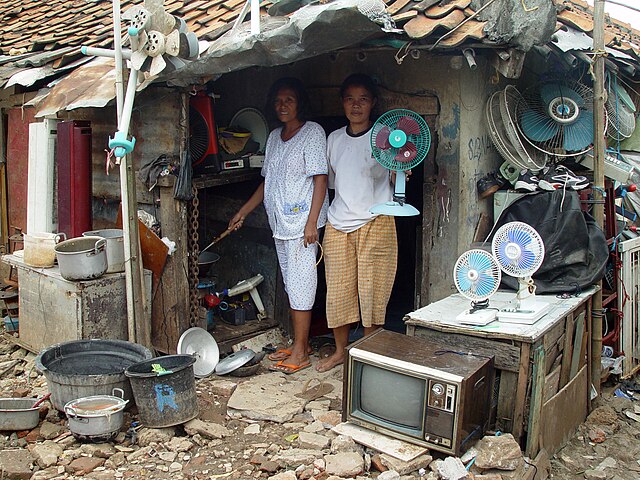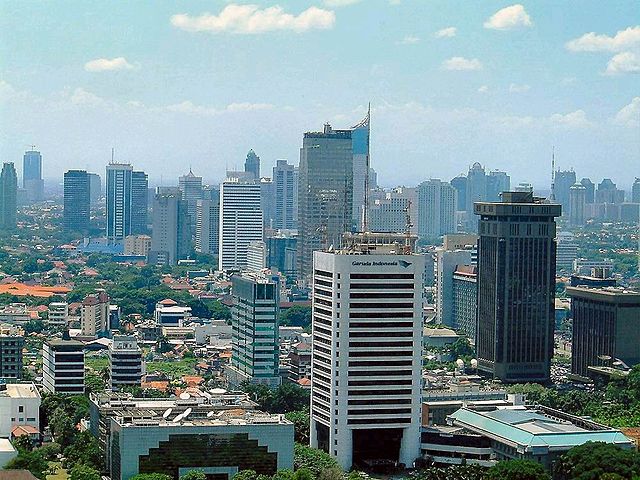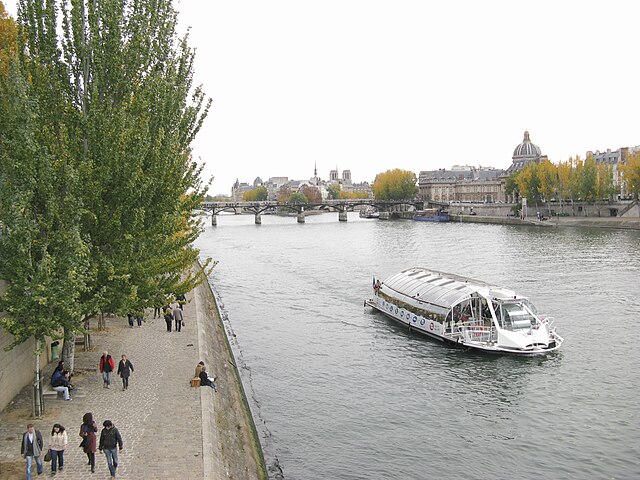Water privatisation in Jakarta
Water privatisation in Jakarta began when the British water company Thames Water entered into an agreement with the son of then-President Suharto in 1993 to obtain a water concession. Under the influence of the French water company Suez, however, the government decided to split the city's service area between the two companies. The government awarded Thames Water and Suez each a concession for one half of the city without competitive bidding. The contracts foresaw water charge increases that would allow the companies to earn a comfortable 22 percent rate of return. However, only two months after the contracts were signed, the Indonesian rupiah massively lost in value due to the East Asian financial crisis, and President Suharto was toppled. The concessions survived, but the government imposed a tariff freeze and the contracts had to be renegotiated to reduce their targets. In 2006 Suez sold half and Thames Water all its shares to Indonesian investors.
Slum residents in Jakarta.
View of Jakarta.
A boy takes a shower from what may be an illegal water connection, illustrating the complicated notion of "water losses" in a city characterised by widespread poverty.
Water privatization is short for private sector participations in the provision of water services and sanitation. Water privatization has a variable history in which its popularity and favorability has fluctuated in the market and politics. One of the common forms of privatization is public–private partnerships (PPPs). PPPs allow for a mix between public and private ownership and/or management of water and sanitation sources and infrastructure. Privatization, as proponents argue, may not only increase efficiency and service quality but also increase fiscal benefits. There are different forms of regulation in place for current privatization systems.
Graffiti against the closure of a public fountain and privatization of water in Turnhout, Flanders.
The Hampton water works serving London were part of the assets sold in 1989 as part of the privatization of water supply in England.
The water supply of Paris was operated by two private companies from 1985 to 2010, each serving one half of the city.
The water supply of Barcelona has been managed by a private company, Aguas de Barcelona, since 1867.







